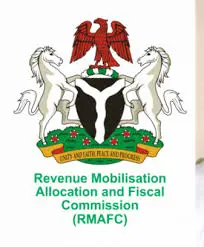Mr Jelani Aliyu, the Director General, National Automotive Design and Development Council (NADDC) on Tuesday says the construction of three automotive device testing centres in Nigeria is 85 per cent complete.
Aliyu said this at the ongoing 39th Gulf Information Technology Exhibition (GITEX) holding in Dubai, United Arab Emirates (UAE).
The event is an annual show that has over 200,000 technology interests and more than 145 countries in participation.
The NADDC boss said that participating in GITEX would enable the country to leverage on technology to improve the lives of Nigerians.
According to him, developing standard infrastructure for indigenous production of vehicles will create jobs, grow the economy and give Nigerians the opportunity to explore their potential.
He added that “we are about to ensure standards with automotive components, cars and to that effect, we are about 85 per cent complete on the construction of three automotive device testing centres across the country.
“In Zaria, we will be testing materials that will be used for automotive production, in Enugu, we will be testing components that will go into vehicles and in Lagos, we have an emission testing lab for testing of emissions.
“By the time these centres are fully running, vehicles or components sold in Nigeria would have been tested, certified and approved, otherwise it will be illegal to have that in Nigeria,” he said.
Aliyu said more infrastructure were being put in place and work ongoing to develop three other locations in Kaduna, Osun and Anambra states for the construction of automotive industrial parks.
According to him, the parks will have all the necessary infrastructure from electricity, water supply, connectivity, among other requirements.
He recalled that the council had trained 300,000 youths in 2018 on skills needed for automotive construction, adding that same skills acquisition was presently going on.
“We want to empower youths and make them sustainable and ensure they understand new automotive technology.
“We have also started the design of an ambulance that can reach any location in Nigeria because 50 per cent of our population live in remote areas.
“We are looking at a vehicle that can take medicine to people in need. We have also started the design and development of the Nigerian vehicle that will be affordable and enable the economy to grow.
“We are working to develop a vehicle that will be in tune with the culture, climate and terrain, as well as the economic structure of the Nigerian population.
“This will be a brand new vehicle between the cost of three and five million naira,” he said.
Aliyu added that the country was strengthening relationships with Original Equipment Manufacturers (OEMs) like Peugeot, Volkswagen to return to the country for production.
He said that due to the global economy in 1986 following crash in crude oil price, some of those companies left, adding however that they started returning since implementation of the National Automotive Industrial Plan (NAIP) commenced.
“Peugeot is back and just recently we signed a Memorandum of Understanding with Volkswagen for them to come back to Nigeria.
“That means that their coming back will create thousands of direct and indirect jobs.
“Honda recently celebrated its 40 years anniversary in Nigeria and last year, the company introduced a brand new Honda HRV which is assembled in Otta, Ogun State.
“To prove that the vehicle is right for Nigeria, the company’s official drove it all the way from Otta to Abuja,” Aliyu said. (NAN)



